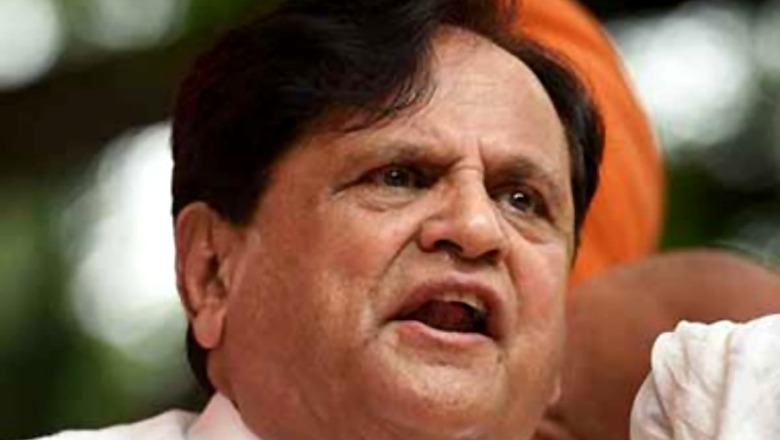
views
The Congress’ Rajya Sabha MP Ahmed Patel on Saturday demanded that a task force be constituted to frame guidelines for holding online classes for school children and the government helps students from weaker sections of the society who do not have access to computers or smartphones. Raising the demand in Rajya Sabha during the Zero Hour, Patel said the Centre must increase spending to provide digital support to poor students.
”We demand from the government to constitute a task force to study how online classes are putting severe mental stress on students as well as their families. The central government should come out with national guidelines after consulting states as to what should be the rules under which online classes be held. ”Rather than changing education syllabus, the central government must increase spending to provide digital support for poor students,” he said in his Zero Hour submission.
The Congress MP said schools have been closed for the last six months, and many public and private schools are conducting online classes. At times, this is being done to justify the collection of fees, he said. ”This is creating an immense mental and financial burden on economically backward families. In poor homes, either they don’t have a laptop or computer and if they do have a smartphone, it is usually shared by many family members. Digital India should not become an instrument for ’digital divide’ between the rich and poor,” he said.
Patel said in some states like Gujarat, Delhi, Kerala and Bengal, some students have taken their lives due to the ”stress and stigma” of online classes. He cited the findings of a survey whereby 24 per cent of houses have Internet access and nine per cent of students have access to the Internet. He said according to a Gujarat education department survey, only three per cent students had a laptop or PC and fur per cent students had access to smartphones with unlimited data plans.
Similarly, a Delhi government survey revealed that 80 per cent houses do not have any laptop or computers, while a Telangana Teachers’ Federation survey says 70 per cent students attending online classes didn’t follow anything taught, Patel said. He alleged that access to the Internet in states like Madhya Pradesh, Bihar and Odisha is worse than Goa, Delhi and Himachal Pradesh.
Patel said that in 2014, the Narendra Modi government promised to provide broadband connectivity 2.5 lakh village panchayats by 2017, but so far only 23,000 have been connected.



















Comments
0 comment